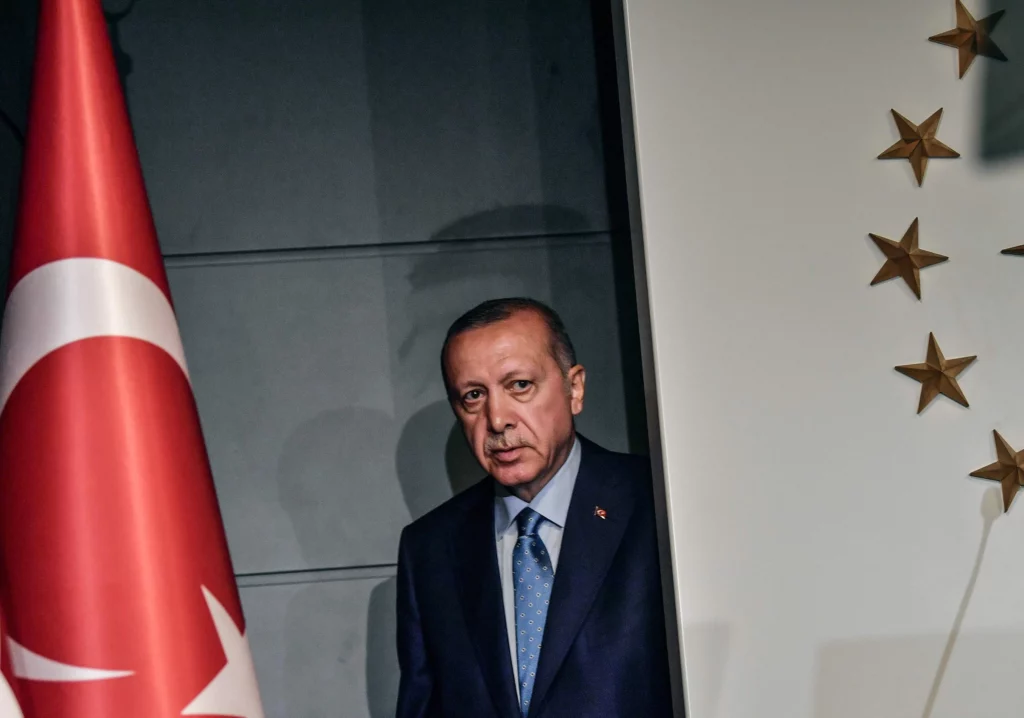Now the Turks have shot down a Russian warplane, Mr Putin might finally understand that if you play with fire, you end up getting burned
Until Turkey shot down a Russian fighter jet over its border with Syria on Tuesday, Vladimir Putin seemed to have convinced himself that Nato countries were just not serious about confronting Russia’s increasingly belligerent military conduct.
The Russian president recently made this view known when close aides warned him of Britain’s views on Russia. They told him that, when Britain outlined its National Security Strategy as part of the 2015 defence review, it would argue that, after Islamic State (Isil), Russia posed the greatest threat to global peace. But rather than being alarmed that his country was being cast in the same mould as the barbaric followers of Isil, Mr Putin simply shrugged. “Don’t worry,” he reassured his aides. “The British aren’t serious.”
And, given the impotent response by Britain and its Nato allies to Moscow’s various acts of aggression over the past decade, who could blame the Russian leader for his nonchalance? Georgia, Crimea, eastern Ukraine, the Baltics, Syria: the roll call of Mr Putin’s unwelcome meddling in the affairs of other nations does not make happy reading for Western leaders. And yet, until yesterday, Nato had done precious little to persuade Mr Putin to rethink his cavalier attitude towards other nations’ borders.
Nato turned a blind eye when, in retaliation for Georgia’s attempts to join the Nato alliance in 2008, Moscow helped itself to the former Georgian territories of South Ossetia and Abkhazia. Last year’s illegal annexation of Crimea is now a fait accompli so far as Russia is concerned, while Nato’s response to the Kremlin’s continued sabre-rattling in eastern Ukraine and the Baltics has been to conduct a few war games and bolster its air patrols.
So when Mr Putin embarked on his Syrian adventure earlier in the autumn, he had little reason to heed Nato’s blunt warnings of the serious consequences Russia might face if its warplanes continued to violate the airspace of Turkey, one of the alliance’s more volatile members.
Mr Putin’s belief that he could conduct Russia’s dealings in Syria with arrogant disregard for other regional concerns resulted in yesterday’s disaster. But as the world knows only too well from bitter experience, fundamental misunderstandings of this kind are how world wars get started.
Mr Putin continues to insist that Russia’s military intervention in support of the Syrian dictator Bashar al-Assad is aimed at destroying Isil, even though his critics claim the reality is that the Russians are concentrating their firepower on bombing Syrian opposition groups, many of which have Turkish backing. The Turks, who harbour their own desire to remove Assad, have been angered by Russia’s intervention, particularly as it has led to Russian warplanes violating Turkish air space when they bomb rebel positions in northern Syria.
Syria fields one squadron of the Russian-made Sukhoi Su-24
Last month these careless Russian antics prompted the US and its Nato allies to issue a blunt warning that the alliance would respond militarily if Moscow continued with what Nato leaders called “unacceptable violations of Turkish air space”. This time around, Mr Putin should have taken Nato’s warnings at face value, particularly as the Turks were itching to teach the Russians a lesson. He didn’t, and now he must deal with the consequences of a Turkish F-16 shooting down a Russian Sukhoi SU-24 while on a bombing raid against Turkmen positions close to the Turkish border. If Mr Putin wants to play with fire, then he needs to learn he will end up getting burned.
The challenge now, for Nato as well as for Russia, is to prevent tensions between Moscow and Ankara from spiralling out of control. Turkey’s relations with Russia are already strained following Moscow’s Syrian intervention, with the Turkish president Tayyip Erdogan warning that Turkey could cut its lucrative energy ties with Russia. The Turks would certainly resist any attempt by Russia to launch retaliatory action against the Turkmen, who yesterday claimed they had shot dead the two Russian pilots as they attempted to parachute to safety, although this was later denied by Turkish officials.
Turkey funds a number of Turkmen militias in northern Syria that are fighting to overthrow the Assad regime. It is unlikely the Turks would tolerate Russian attacks on their ethnic allies, which could easily lead to direct military confrontation between Russia and Turkey, with all the implications that would have for the Nato alliance, which would then be obliged to defend Turkey’s borders.
Mr Putin has badly misread Turkey’s determination to defend its interests and, by so doing, has further complicated the tangled web of alliances that underpin the Syrian conflict. He has also made life more difficult for David Cameron, who will tomorrow tell the Commons about his own plans for Britain to participate in the air war against Isil. Like Mr Putin, Mr Cameron says he wants to launch air strikes against Isil in Syria. But, after yesterday, Mr Cameron can be in no doubt that, however he views Mr Putin’s role in the conflict, it will most certainly not be that of an ally.
